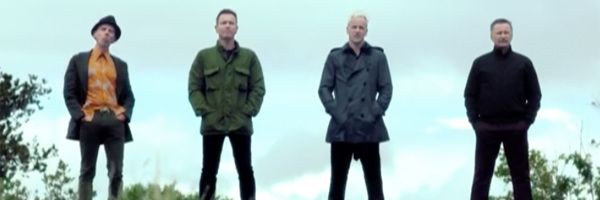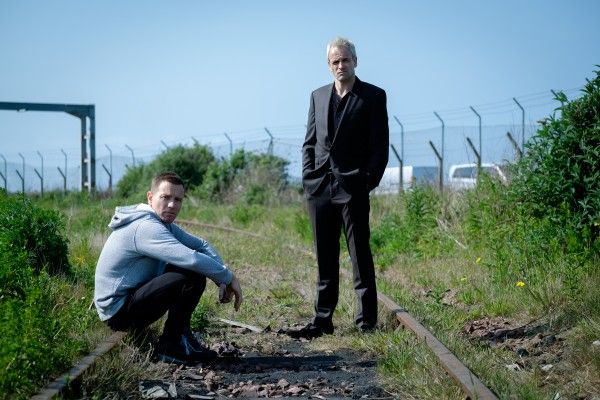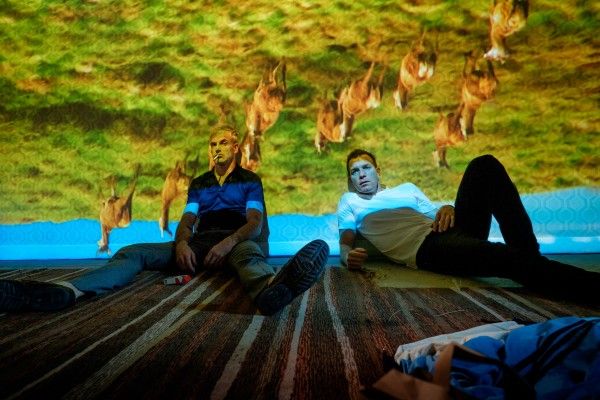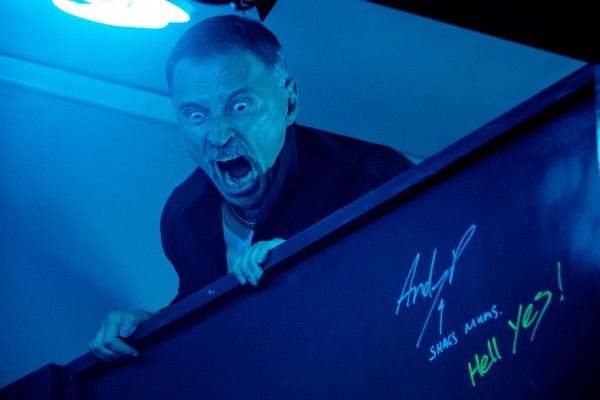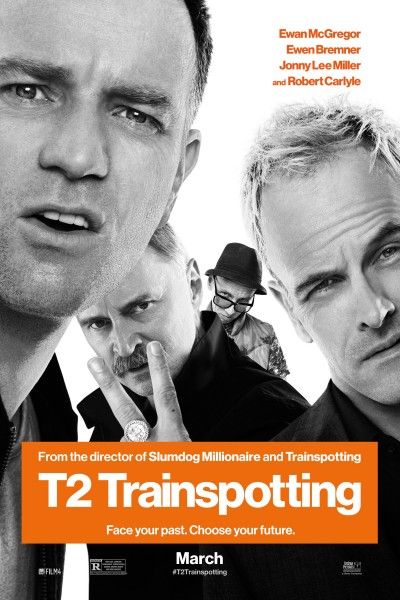[Note: This is a re-post of our review from London, T2 Transpotting opens in the US with a limited release this weekend, March 17; it goes wide on March 24 ]
Trainspotting is a film of reckless youth. It’s dangerous, exciting, funny, wild, exuberant, and off-kilter. There’s no way to recapture that magic, and to director Danny Boyle’s credit, he doesn’t try to with his sequel, T2 Trainspotting. Instead, T2 despite the visual flourishes that are simply a part of Boyle’s style (and executed flawlessly by brilliant DP Anthony Dod Mantle), is a more somber affair, looking at the four main characters of the first movie and seeing how they’ve stagnated. If Renton (Ewan McGregor), Spud (Ewen Bremner), Sick Boy (Jonny Lee Miller), and Begbie (Robert Carlyle) approached the world with youthful abandon in their 20s, they’re just abandoned and adrift in their 40s. While the film’s structure is given over mostly to little vignettes and tries to look at the world through all four character rather than just Renton, Trainspotting is an interesting mediation on how fundamental change is either fleeting or miniscule.
Picking up twenty years after the first movie, Mark Renton (all of the characters now go by their first names rather than nicknames) has returned home to Scotland. His life seems to be fairly in order, but not so much for his former mates who he betrayed two decades ago. Daniel “Spud” Murphy is an addict on the verge of suicide; Simon “Sick Boy” is a cokehead working a blackmail racket with his business partner Veronika (Anjela Nedyalkova); and Frank Begbie has escaped from prison to resume his criminal ways. It turns out, no one is doing better, and while smack doesn’t consume their waking hours like it did in their 20s, the four characters are as lost as ever.
Boyle and screenwriter John Hodge eagerly dive into their lost characters, happy to take advantage of the time that has passed between the two films. While a Trainspotting sequel has been rumored for years, we should be grateful that so much time has passed since the 1996 film. It provides not only perspective, but also a unique angle that allows Boyle to dig deeper into what makes his characters tick. Had the sequel come out five or even ten years after the original, it would probably just be another tale of four guys out to score, but in T2, Boyle is able to show that what drove these men to drug addiction was never really about the drugs or even youthful abandon.
T2 comes to the depressing conclusion that who you are in your 20s is who you are going to be in your 40s minus the infinite possibilities, which raises the question if those possibilities were real at all. The first movie lulls you into the belief that Renton’s betrayal—stealing the money from his friends and running away—leads to opportunity and perhaps a fresh start. T2 turns that on its head by showing that opportunity leads to betrayal, and you tend to end up back where you started. The film argues you can’t go home again not because home is gone or the world has changed, but because you never really left.
The film’s comment on nostalgia ends up making it a wry commentary on the nature of sequels. Sequels promise familiarity and that in an ever-changing world, we’ll get more of what we love. Rocky always wins the fight; Ripley beats the xenomorph; Batman saves Gotham. T2 points out that it’s actually sad when things don’t change. If we’re all locked into being winners and losers, that’s a fairly hopeless existence. Nostalgia can provide comfort, but as Sick Boy at one point says to Renton, “You’re a tourist in your own memory.” T2 constantly works to show that comfort as disappointing malaise.
While T2 isn’t as tight or as groundbreaking as its predecessor, Boyle once again uses those expectations in his favor. To surpass his acclaimed original would oddly defeat the purpose of the sequel, a film that argues things don’t get massively better as time goes on. And while the movie can feel a bit overstuffed and meandering (at one point, it seems like Spud completely disappears from the narrative because the movie doesn’t know what to do with him), it at least feels in line with the characters’ attitudes. In twenty years, these four men haven’t figured anything out. They fall back into their former ways, which isn’t a fun romp but something a bit more desperate.
In 1996, Renton, Spud, Sick Boy and Begbie were living like there was no tomorrow, and the consequences be damned for everyone else. Instead, all four men got plenty of tomorrow and yet no distance from who they were. Kicking smack didn’t mean getting their lives together, and while they may try to get up to their old tricks, there’s no recapturing their lost youth. T2 Trainspotting makes for a fascinating reflection on how curious and sad that is.
Rating: B

